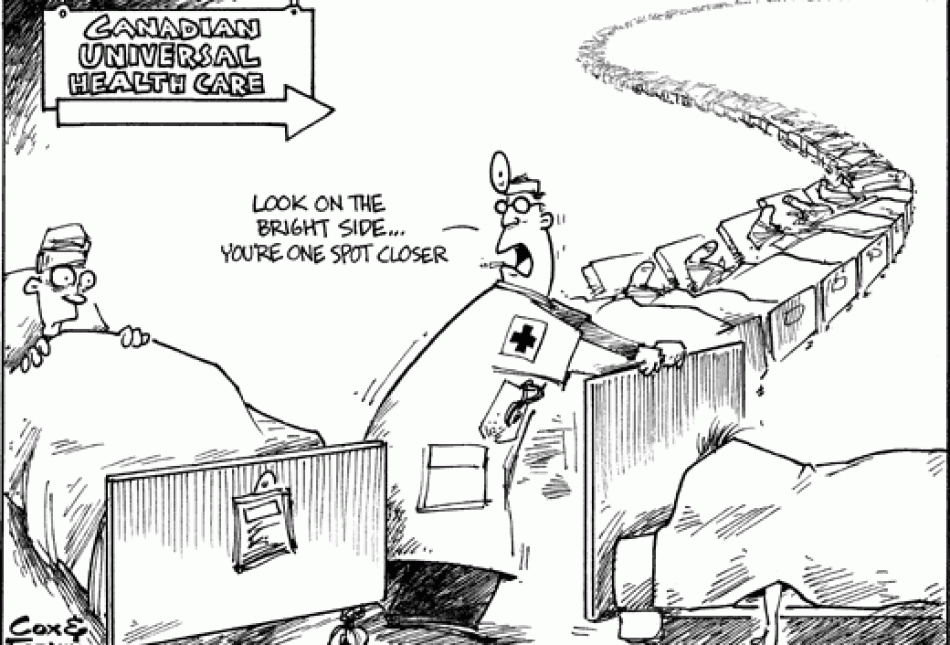NM Governor Proposes Massive Medicaid Expansion, Universal Coverage

Editor’s note: The following article appeared in the October, 2006 edition of Health Care News which is published by the Heartland Institute www.heartland.org. The publication is distributed to state legislators and policymakers in all 50 states.
In a clear sign that health care and the uninsured remain hot-button issues on which many politicians intend to be proactive, New Mexico Gov. Bill Richardson (D) on July 20 proposed significant changes to the state’s Medicaid system.
Depending on the findings of the commission he appointed to explore universal insurance coverage options, expected next year, New Mexico may embark on a scheme to provide universal health care by 2008.
“Uninsured New Mexicans are a tremendous risk, and the effect of uncompensated care on our health care system is profound,” Richardson told the Santa Fe New Mexican on July 21. “We can’t wait for the federal government to solve this issue.”
Master Plan
In addition to appointing the task force, Richardson’s proposal included four other major elements:
- Phasing in a requirement for companies doing business with the state to begin offering health insurance benefits to their New Mexico employees if they do not do so already.
- Determining the number of state government employees who lack health coverage. Currently, if an employee declines enrollment, the state doesn’t check to see if he or she has coverage through a spouse or other entity. This full accounting will help create an accurate picture of coverage gaps and help the state target outreach efforts to get as many state government employees covered as possible, the governor said.
- “Maximizing” Medicaid coverage. For fiscal year 2008, Richardson will seek funding to increase coverage for adults through a two-year, phased-in approach. The initiative will be specifically designed to help low-income adults earning up to 100 percent of the federal poverty level. “Medicaid currently covers only adults with children whose incomes are below 30 percent of the poverty level, or $4,700 per year for a family of three,” explained Pam Hyde, secretary of the state Department of Human Services. “Covering all adults to 100 percent of the poverty level, or $16,600 a year for an equivalent family, would bring another 42,000 people under Medicaid coverage. Phased in over two years, the program would cost $1,500 per person per year.”
- Expanding the State Coverage Insurance program to help more working adults and asking the federal government to raise the federal poverty requirement to 300 percent with cost-sharing based on income. Expanding this public/private partnership with small employers will help cover working New Mexicans who currently cannot afford insurance, Richardson said. Currently serving 5,000 adults with incomes up to twice the poverty level, the program would be expanded to three times the poverty level, described as a family of three with an income of $49,800.
Federal Largesse
According to the Kaiser Family Foundation, 22 percent of New Mexicans lack health care coverage–more than any other state but Texas.
If enacted in its entirety in the upcoming legislative session, Richardson’s plan is expected to insure 59,000 New Mexicans–approximately 15 percent of the population currently lacking health insurance. It would cost the state $77 million a year while significantly raising the amount New Mexico receives for Medicaid from the federal government.
“The plan is affordable, because it would leverage $250 million in additional federal Medicaid funds,” New Mexico House Speaker Ben Luján (D-Nambé) told the Santa Fe New Mexican on July 21. New Mexico currently receives nearly $3 from the federal government for every $1 it spends on Medicaid from state funds.
Split Opinion
Reaction to Richardson’s proposal among public policymakers and opinion leaders was split along ideological lines.
Sharon Kayne, communications director for New Mexico Voices for Children, a self-described progressive, nonpartisan organization, welcomed the plan, saying, “We are pleased that the five-point plan revealed today includes an expansion of Medicaid, which plays an important role in lowering health care costs for everyone.”
But Michael Cannon, director of health policy studies at the libertarian Cato Institute in Washington, DC, said the governor’s plan will “increase taxes, pull more New Mexicans down into poverty, and increase the cost of private health care and coverage.”
Cannon said Richardson should instead make “these programs less burdensome by recovering Medicaid costs from the estates of well-to-do seniors” and make health care more affordable and convenient by deregulating nurse practitioners and other providers. Cannon also suggested the state lower the cost of private health insurance “by letting New Mexico residents and employers purchase coverage from out of state.”
